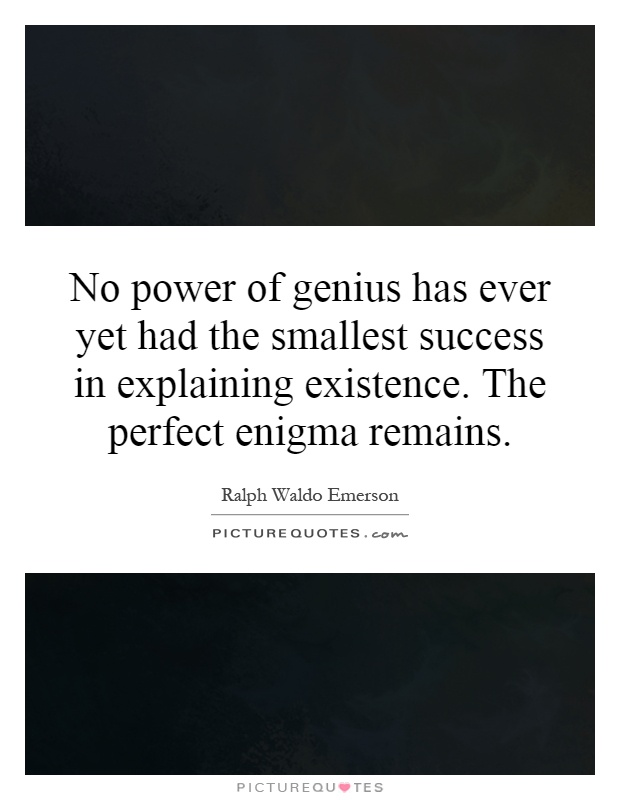No power of genius has ever yet had the smallest success in explaining existence. The perfect enigma remains

No power of genius has ever yet had the smallest success in explaining existence. The perfect enigma remains
Ralph Waldo Emerson, a prominent American essayist, lecturer, and poet, was known for his transcendentalist philosophy that emphasized the importance of individualism, self-reliance, and the interconnectedness of all things in nature. In his works, Emerson often grappled with the mysteries of existence and the limitations of human understanding when it came to unraveling the complexities of the universe.Emerson believed that the human mind, no matter how brilliant or creative, could never fully comprehend the true nature of existence. He saw existence as a profound enigma, a puzzle that could never be fully solved by the power of genius alone. In his essay "Nature," Emerson writes, "The noblest ministry of nature is to stand as the apparition of God. It is the organ through which the universal spirit speaks to the individual, and strives to lead back the individual to it."
For Emerson, the beauty and wonder of existence lay not in its comprehensibility, but in its mystery and unknowable depths. He believed that the true essence of existence could only be experienced through a deep connection with nature and a willingness to embrace the unknown. In his essay "Self-Reliance," Emerson famously wrote, "Trust thyself: every heart vibrates to that iron string."
Emerson's philosophy of self-reliance and individualism was rooted in his belief that each person had the power to tap into the universal spirit and gain insight into the mysteries of existence. He saw genius not as a means to explain existence, but as a tool to explore and appreciate its beauty and complexity. In his essay "The Over-Soul," Emerson writes, "We live in succession, in division, in parts, in particles. Meantime within man is the soul of the whole; the wise silence; the universal beauty, to which every part and particle is equally related."












 Friendship Quotes
Friendship Quotes Love Quotes
Love Quotes Life Quotes
Life Quotes Funny Quotes
Funny Quotes Motivational Quotes
Motivational Quotes Inspirational Quotes
Inspirational Quotes